IKRAIL – Transforming Indigenous Technology Knowledge to Modern Technology Knowledge at Village
Description
Village – Ikrail is located in one of the remotest areas where education considered luxury for the rich, and girls education as watering neighbors’ trees. Fighting with one another was part of their cultures. This tendency is going on from generation to generation. Establishment of a community primary school, general educational and technical (vocational) schools have changed the status of Ikrail and seven surrounding villages. From the early age, children of Ikrail learn traditional technologies from their parents and neighbors. The objective of the project is to upgrade life style of people of the region giving recognition to their indigenous technology knowledge. In the vocational /technical school, the courses taught are very much relevant to their traditional activities. The children learn scientific terms and calculations in local and indigenous ways but can transform them into modern scientific terms and methods. The project brought a tremendous change in the society. There is no instance of fighting among the local people any more. Students succeeded to convince their guardians that fighting does not bring any positive impact. Tele-centre in the community has brought the globe in their hands. The teachers and students of Ikrail based vocational school use tele-centre for solving local problems and for training students and others.
What we deliver
Effective and relevant education is provided to the children and the people of Ikrail region are encouraged to apply their traditional/indigenous knowledge for development. Their traditional but informal knowledge is given much importance in various ways of developmental works in the region and elsewhere. Children who used to play or help their parents work, or collect cow-dung all day long are now busy in solving the problems in geometry or algebra sitting in groups. Sources of income have increased in most families through utilization of their labors and efforts in better and effective ways using technology in most cases. Ecological balance maintained in modern and indigenous processes by the locally trained people in cooperation of trained experts.
Whom we deliver
Satisfactory interactions are there among AAIT experts, trained professionals, scientists, students, technologists, researchers, policy makers, international organizations like UNESCO, IDRC, DFID, SADC, GASAT, Commonwealth Secretariat, Wilton park conference, WIGSAT and other gender and ICT related organizations and individuals who are using modern technology tools such as emails, fax, phone, mobile and sometimes face to face meeting, attending effective events all over the globe. Excellent cooperation from all sectors is leading the project to its destination.
Why is the project unique?
I believe my project is unique in all respects. Bangladesh is a small country with the highest population density. The total population is now around 150 millions and 75% people still live in villages. In respect of living standard, villages are not in the same level. Some village enjoys all sorts of modern facilities as like as urban. Alternatively some village people still live in indigenous ways. Ikrail is one such village. We have succeeded to identify their main problems and the reasons of the problems. We have also succeeded to give solution to their problems in the most effective and strategic ways. We have succeeded in all respects including culture, health, education, financial and social reformations.
Roadmap
Digital technologies have permeated economic markets, politics, our workplaces, the ways we communicate with each other, our home activities, as well as operation of all levels of education from kindergarten to doctoral studies. The digital technologies gave rise to many new providers of higher education and increased the competition in the academic global market, while we witness a growing trend of collaboration and convergence of academic practices enhanced by the new media. Regarding vision of digital content for development, ICT will not only enables distance education; it will also enable the overall education structures of schools and higher education. Digital technology will be the all pervasive development tools for the new generation.
Contact
Prof. Lutfor Rahman
Association for Advancement of Information Technology (AAIT)
Apt. 5A, House No. 93, Road No. 9A, Dhanmondi
Dhaka, Bangladesh
120900




